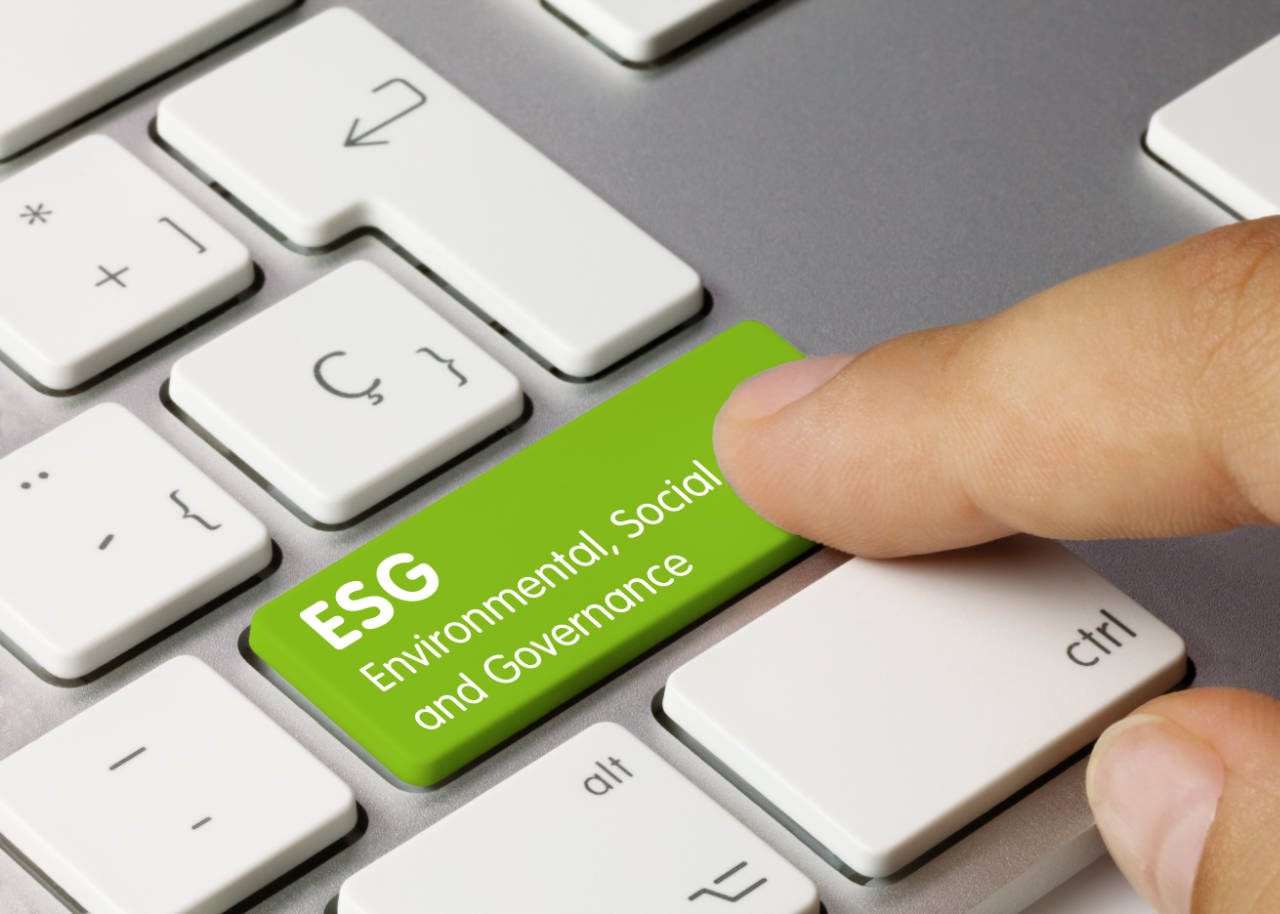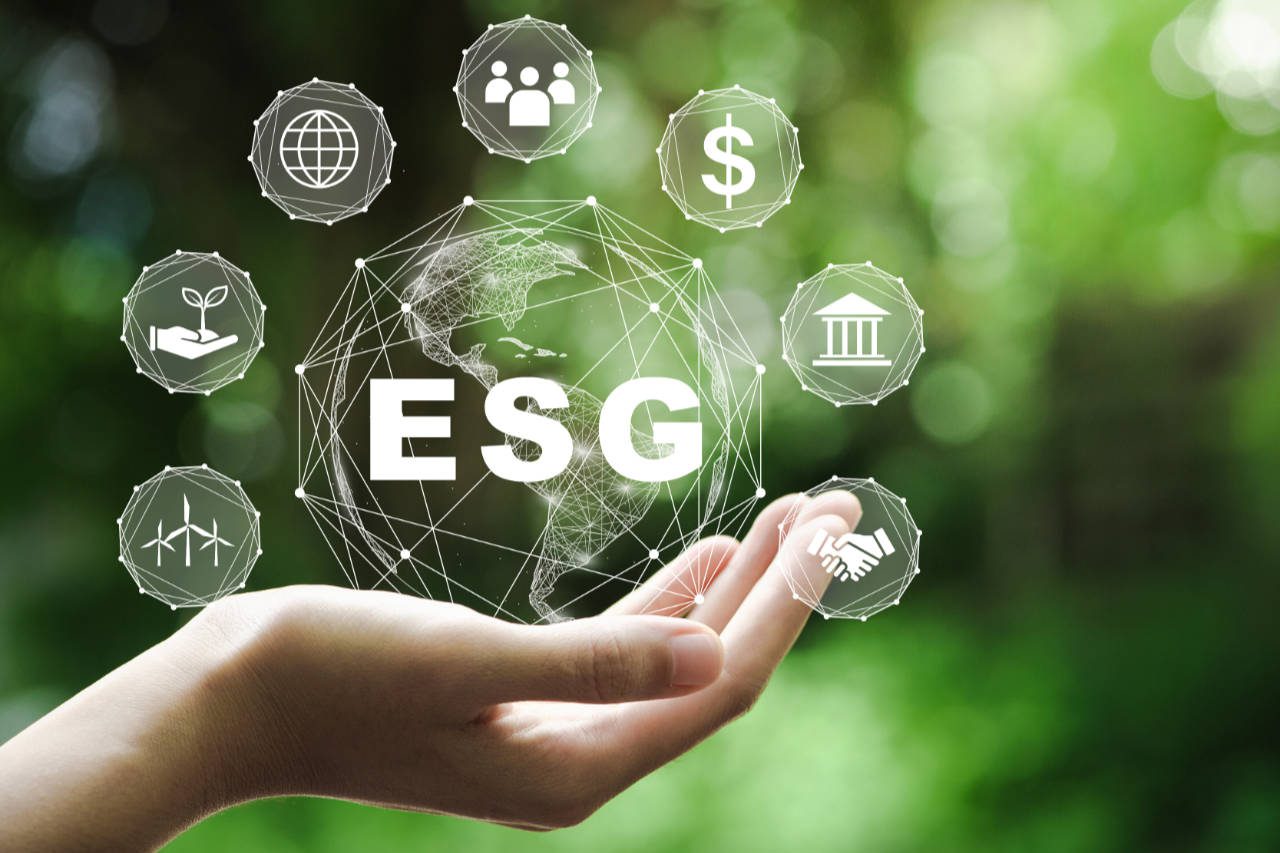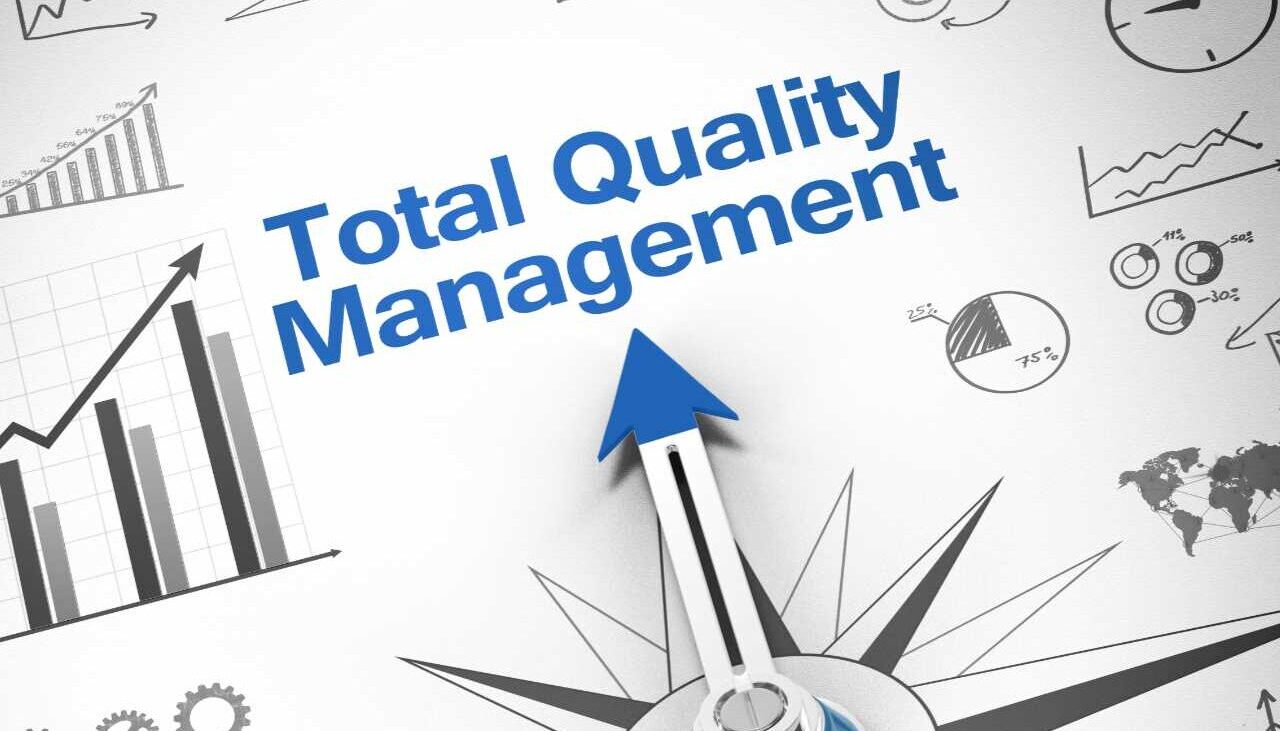Understanding what ESG is and how your business can embed it is an increasing priority. Increasing transparency on how businesses approach issues such as diversity, equality and the environment has pushed ESG – environmental, social and governance – to the top of the corporate agenda. Organisations are being placed under the ESG microscope by business investors and customers, who are pressuring firms to disclose ESG metrics, such as carbon emissions, as part of due diligence during investment or tendering rounds.
Businesses that prioritise ESG issues – from reducing carbon emissions to closing the gender pay gap – are proving increasingly attractive to investors. In 2021, investment in ESG funds neared $700bn according to The Irish Times – double the 2019 figure – and represented 10% of all global investments. Implementing environmental management systems and achieving certification in ESG-centric ISO standards such as ISO 14001 and ISO 50001 can demonstrate your organisation’s commitment to ESG practices.

What is ESG?
ESG is an umbrella term covering the areas of your business that impact communities, the environment or social issues such as diversity in the workforce.
Central to ESG practices is transparency. Businesses need to audit their practices and operations, establish targets and policies, and transparently report on progress. For example, a company might commit to becoming carbon neutral within a decade or switch to a supply chain of Fair Trade producers, producing an annual report on its progress towards this ESG goal.
The three pillars of ESG are:
- Environmental issues such as carbon emissions.
- Social issues such as fair and equal pay.
- Governance such as transparency in the boardroom and gender equality in leadership teams.
Environmental
This covers the potential impact a business has on the environment, such as recycling and waste management processes. It allows a company to see which parts of its operations can be made more sustainable, such as using low-carbon materials or low-energy logistics.
Business drivers include government legislation, being part of a supply chain to larger corporates, and end customers. The government’s Climate Action Plan, for example, contains targets that impact businesses, such as the nation becoming a net-zero country by 2050 through the introduction of cutting-edge agriculture, offshore wind farms and legally binding ceilings on emissions for different industry sectors.
Environmental practices your business can implement include:
- Using renewable energy sources such as solar, hydro or wind.
- Using sustainable materials for your products and packaging.
- Reducing waste and increasing recycling.
- Offsetting your carbon emissions if you’re unable to reduce them.
Read our guide to the best practices for greater energy efficiency.
Social
An organisation’s impact on its people, communities and society is increasingly under the microscope, especially for issues such as diversity and inclusivity. A focus on fair and equal treatment of employees, for example, also extends into the supply chain with action in rooting out modern slavery or ensuring producers are paid a fair price high on the agenda.
Social practices to help positively impact workplace culture and wider communities include:
- Direct support for community projects, such as investing in education.
- Implementing support for the mental and physical well-being of workers.
- Auditing suppliers to ensure workers through the supply chain are treated fairly.
- Providing products and services that are safe and fit for purpose.
Governance
Governance is all about the transparency of a business. It refers to the methods and logistics of running a business including the decision-making and reporting processes.
It considers whether an organisation’s behaviour is ethical and how open it is with stakeholders and investors about its activities, such as handling and processing customers’ personal information. Governance goes hand-in-hand with transparency on environmental and social practices.
Governance activities you can implement include:
- Providing training, support and reporting mechanisms for ethical business practices such as anti-bribery.
- Creating clear and accurate reports on finances, strategies and performance for stakeholders.
- Building a structured leadership team with clear accountability and responsibility for aspects of the business.
- Implementing a whistleblower policy to protect employees that identify and report poor practices.
Read our guide to who is responsible for demonstrating GDPR compliance.

Why companies should embrace ESG
Embedding ESG into your business is beneficial for its growth in several ways:
- Boosts company reputation: Prioritising ESG and its values demonstrates that your business is invested in helping the environment, supporting an ethical and positive workplace culture, and encouraging diversity and inclusivity. Transparent ESG plans may give you a competitive advantage against other companies and open the door to more tenders and bids.
- Attracts investment and funding: Transparency on ESG-related issues can make your business more attractive to investors and help secure funding required for business activities.
- Attracts employees: Studies show that employers with greater employee satisfaction rates have higher ESG scores than other businesses.
- Stay ahead of regulations and compliance: Implementing an ESG framework into your business can help you stay on top of current and future legislation.
- Improves risk management: An ESG framework can help your business improve its risk management by identifying and mitigating any risks. Assessing environmental and social factors ahead of time can help with further business planning.
Implementing a management system, such as environmental management system (EMS), which offers an oversight of your company’s practices and policies can provide a strong foundation for ESG activities. An audited management system can lead to certification in a global standard such as ISO 14001.

How ISO 14001 certification plays a role
ISO 14001 certification demonstrates an organisation’s implementation of an EMS. Accreditation supports an organisation’s environmental objectives, such as:
- Supporting compliance with relevant legislation.
- Controlling risks and avoiding environmental incidents.
- Measuring and monitoring environmentally impact activities such as waste management.
- Reporting on performance against environmental KPIs.
Achieving ISO 14001 can help demonstrate your environmental commitments and practices to stakeholders, comply with legislation and apply for tenders that may require ISO 14001 certification.
For businesses looking to improve their energy management through an energy management system (EnMS), achieving ISO 50001 certification can help your business establish energy and cost savings frameworks and aim for Net Zero carbon emissions. The accreditation benefits your organisation by improving your image and reducing costs through more efficient energy use.
Other ISO standards, such as ISO 9001 and ISO 27001, can also support ESG activities with their focus on quality management and information security respectively.









